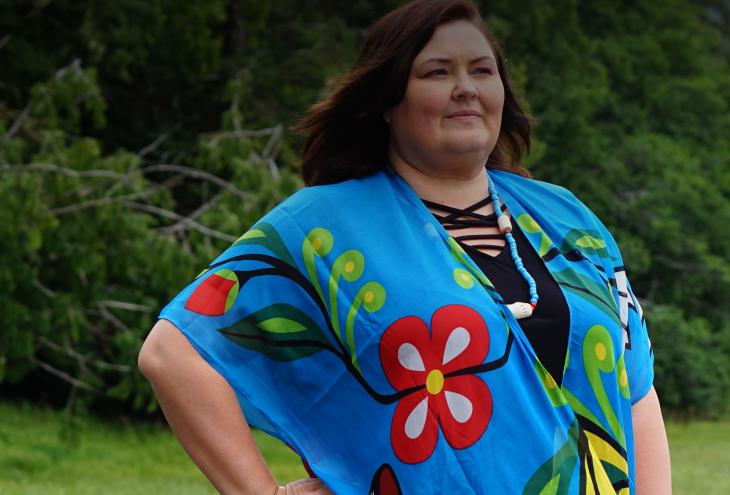Dr. Wendy F. Smythe, Haida, never thought her career would veer into the world of public policy. After growing up in the rural community of Hydaburg on Alaska’s Prince of Wales Island, she earned a dual PhD in estuary and oceans systems and environmental science and engineering from Oregon Health and Sciences University in 2015. A passionate advocate of STEM education in Native communities, Dr. Smythe founded the Geoscience Education Program in Hydaburg. It’s an initiative that has helped boost the number of college-bound students from about 19 percent when the program started 12 years ago to about 65 percent of high school graduates opting to enter college or trade school to pursue STEM degrees.
A two-year post-doctoral NSF (National Science Foundation) AAAS (American Association for the Advancement of Science) Technology and Policy Fellowship at the BEACON Center for the Study of Evolution in Action at Michigan State University showed her the power of policy. “My post-doctoral mentor told me, ‘the work you do in your tribal community is policy,’” recalls Dr. Smythe, this year’s winner of the Professional of the Year award. “I told her it was just me doing work at home as a scientist.”
But Dr. Smythe has come to understand the significant impact — both good and bad — that policy can have on paving the way for more Native students in STEM fields. As an NSF AAAS Fellow for the past two years, Dr. Smythe has worked hard with program officers on making informed decisions when it comes to funding proposals focused on Native American/Alaska Native communities. “Money is policy. If you don’t direct money to ethically and culturally aligned projects, we do damage and disservice to the community,” she says. “Millions are given to Native education, and when there is no change there is an assumption that Native people don’t care about education. But the reality is that it hasn’t been done in a culturally and ethically responsible way.”
Dr. Smythe has come to understand the significant impact — both good and bad — that policy can have on paving the way for more Native students in STEM fields.
To help change that dynamic, Dr. Smythe created a professional development workshop for NSF program officers that focuses on tribal sovereignty, governance, best practices, and ethics for evaluating science and education research projects. She also has served as a reviewer of proposals submitted to NSF’s Geoscience Education division for the past several years. While improved education of program officers about the appropriate way to evaluate proposals from Native communities helps, ultimately the aim should be increased diversity among the program officers themselves. “I think the first step is to increase the number of program officers who are Native. I was the only Native that I know of in the foundation addressing these issues, and with me leaving, my concern is who will continue the work,” says Dr. Smythe, who went on to become an assistant professor at the University of Minnesota Duluth with a joint appointment in American Indian Studies and Environmental Science, the first scientist to join both departments.
One key ingredient to improved policy and funding of Native education programs is clarity on the intersection between traditional ecological knowledge and STEM disciplines. “Our way of knowing is different, as we look at STEM as a single and interrelated sphere, whereas in academia that knowledge gets compartmentalized as separate unrelated concepts,” she says.
All these efforts involve necessary but challenging structural changes. And Dr. Smythe has plenty of experience tackling big challenges. Despite her impressive academic achievements, Dr. Smythe insists she was a late bloomer. That all began to change in a seventh-grade science class, when her teacher made the topics and experiments fun. Even more important, Dr. Smythe’s fisherman grandfather — who took over the role as a father figure when Smythe lost her own dad when she was just 11 — preached about the importance of education. When he passed away, he left money for Dr. Smythe to take a microbiology class. “I wanted to do well because he had given me the gift of education,” she says. “The spark was lit.” Ever since, Dr. Smythe has been doing her best to light that same spark for as many Native students as possible.












